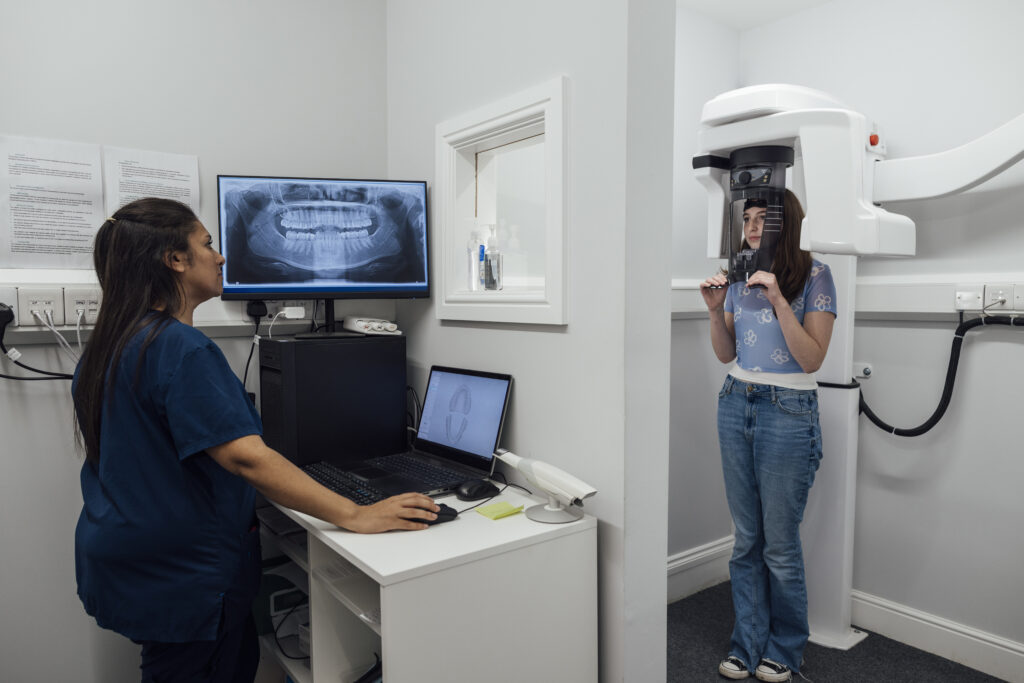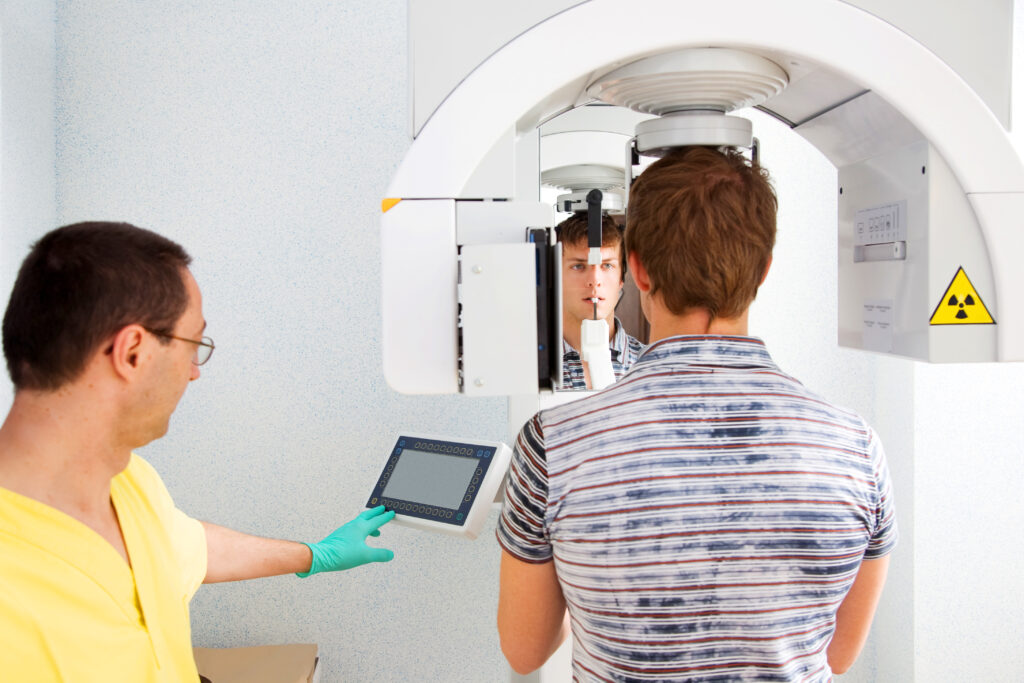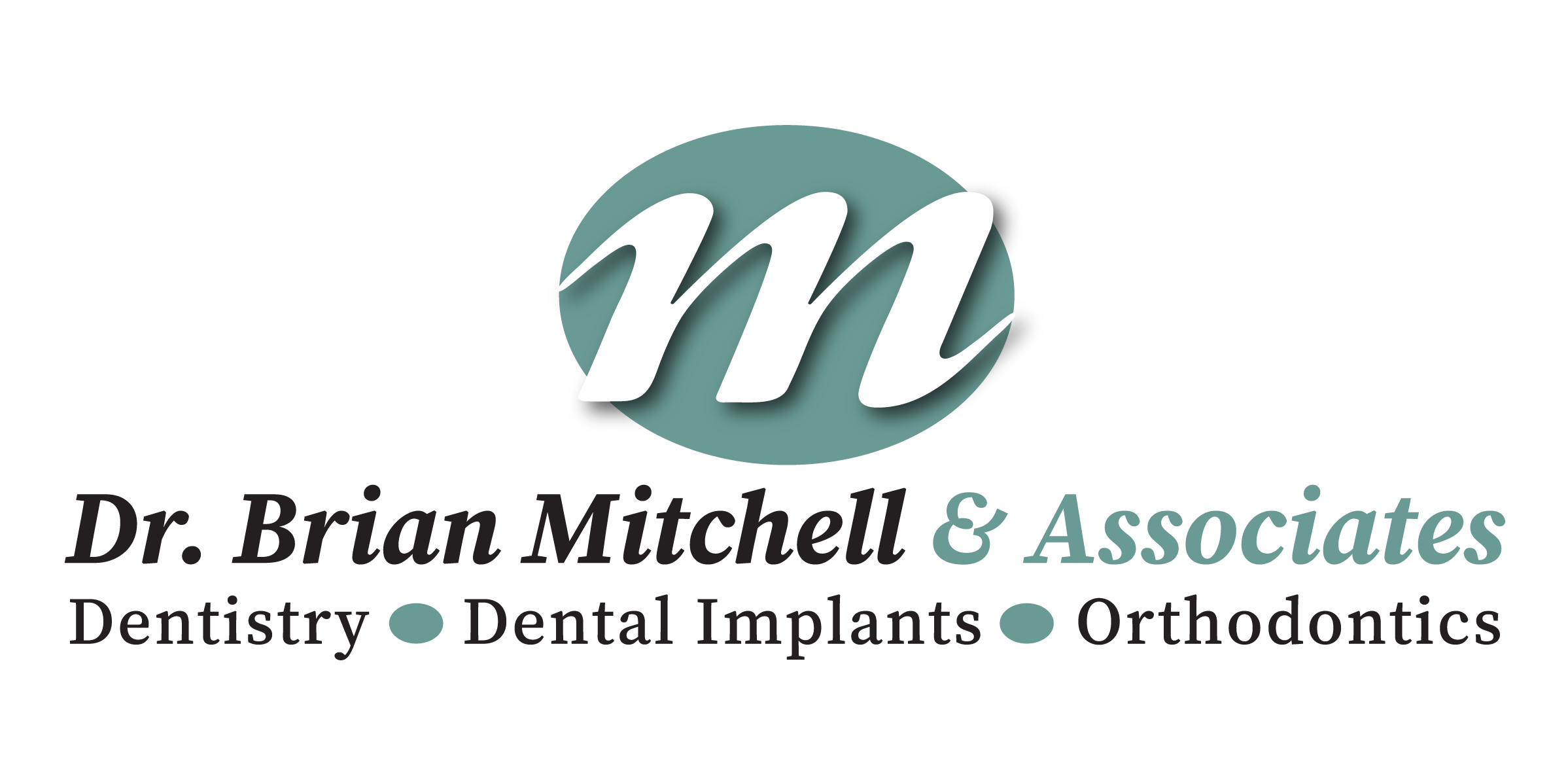Planning for a Dental Implant
If you are considering having a dental implant, it is a good idea to investigate the surgery’s benefits and risks and determine your dentist’s experience. According to the U.S. Food and Drug Administration, implant planning should include your specific patient needs. “Your overall health is an important factor in determining whether you are a good candidate for dental implants, how long it will take to heal, and how long the implant may stay in place.”1 Finding a surgeon who has the proper experience, and education, and uses the latest technology is an important part of your treatment planning. Your dentist should be willing to meet with you in a pretreatment consultation.
I am a firm believer you should conduct a candid interview with a potential dentist before doing any complex dental work,” said Dr. Brian Mitchell. “I also strongly believe a dentist should be willing to give you thirty minutes of their time to explain their treatment plan and answer your questions.” Dr. Brian Mitchell uses computer-guided surgery and cutting-edge 3D X-ray technology allowing him to navigate the intricacies of implant placement with unprecedented accuracy.
For more information contact us today!
“Cone-beam computed tomography systems (CBCT) are a variation of traditional computed tomography (CT) systems. The CBCT systems used by dental professionals rotate around the patient, capturing data using a cone-shaped X-ray beam. These data are used to reconstruct a three-dimensional (3D) image of the following regions of the patient’s anatomy: dental (teeth); oral and maxillofacial region (mouth, jaw, and neck); and ears, nose, and throat.”
2 The cone beam ct is used for various clinical applications including for dental implant planning. Cbct imaging is an effective surgical tool used for dental implants. Beam computed tomography, and the value of the increased image quality, is an excellent surgical guide for implant surgery and should be discussed as part of your treatment planning for implant dentistry.


“X-ray imaging, including dental CBCT, provides a fast, non-invasive way of answering a number of clinical questions. Dental CBCT images provide three-dimensional (3-D) information, rather than the two-dimensional (2-D) information provided by a conventional X-ray image. This may help with the diagnosis, treatment, and evaluation of certain conditions.”3 Radiation exposure from cbct imaging is lower than from other CT exams, however, the cbct scan could expose you to more radiation than a conventional X-ray. This additional radiation exposure dose should be discussed with your dentist while conducting your implant planning. Concerns about radiation dose from beam computed tomography are larger with youthful patients because they may be more sensitive to radiation exposure throughout a longer life expectancy. The benefits of beam ct, with better image quality and precise implant placement with cone beam computed implant dentistry, outweigh the risks involved in implant dentistry treatment planning.
Dr. Brian Mitchell and Associates, uses cone beam radiography and fully guided surgical placement for implants. “The last few years have brought amazing technological advances in our ability to place dental implants quickly and more accurately than ever before,” said Dr. Mitchell. “My Dental Implant System has transformed the implant process into a nearly painless experience. Patients often express surprise at the speed and ease with which implants are placed using this groundbreaking technology.”Cone beam computed imagery will ensure your implant placement is meticulous allowing superior results.

